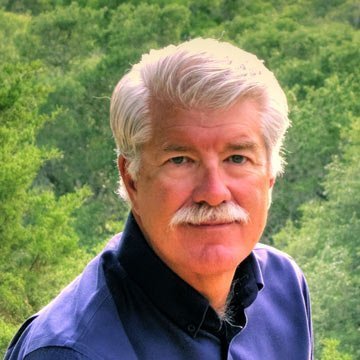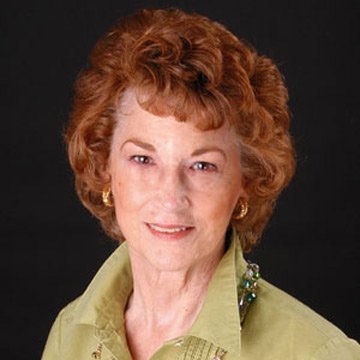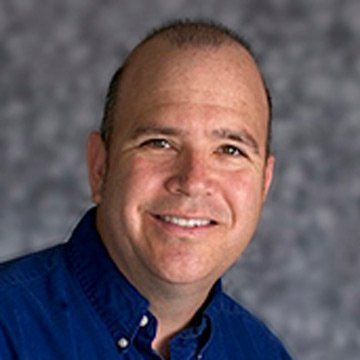Meet the Texas Aquatic Science Authors, Editor, and Video Producer
Rudolph “Rudy” Rosen, Ph.D.

Texas Aquatic Science Author and Editor
RUDOLPH “RUDY” ROSEN, Ph.D., is a professor and Director of the Institute for Water Resources Science and Technology at Texas A&M University in San Antonio, a Fellow of The Meadows Center for Water and the Environmentat Texas State University, and a former Research Associate at the Harte Research Institute for Gulf of Mexico Studies, Texas A&M University-Corpus Christi. He directed a joint project between the Meadows Center and Harte Research Institute called H2O – Headwaters to Ocean. H2O was focused on developing ways to help students of today become engaged water savvy citizens of tomorrow through teacher training, instructional materials development, research and experiential education enhanced with today’s newest mobile and interactive technologies. The H2O project formed the basis for Texas Aquatic Science, a comprehensive curriculum for water and aquatic sciences developed by the Meadows Center, Harte Research Institute, and Texas Parks and Wildlife Department. Dr. Rosen authored the water education textbook Texas Aquatic Science, a product of the H2O partnership. Visit H2O at http://www.water-texas.org
Dr. Rosen is a former Director of Wildlife, Fisheries, and Coastal Resources for the Texas Parks and Wildlife Department. He was also Executive Director of Oregon Department of Fish and Wildlife, where he served in the cabinet for the environment of two governors. He has chaired the Gulf and Pacific States Marine Fisheries Commissions and was President of the Southeastern Association of Fish and Wildlife Agencies. He is a Certified Fisheries Scientist and has been elected a Fellow of the American Institute of Fishery Research Biologists.
Dr. Rosen has degrees from Penn State, South Dakota State and the University of Massachusetts. He has work experience in both freshwater and coastal ecosystems. He was responsible for workgroups conducting some of the largest coastal ecosystem restoration projects ever attempted on the Pacific Coast as director of the Western Regional Office for Ducks Unlimited. He also managed a workgroup responsible for wetland habitat inventory in northern climates, a project classifying habitat in up to 30 million acres per year in the boreal forests of Canada and Alaska.
Dr. Rosen specializes in natural resources management and science, organization leadership and management, fundraising for conservation, and advocacy. He has served in international, national, and regional executive leadership positions in three of the nation’s largest wetlands, fish, and wildlife conservation advocacy organizations: the National Wildlife Federation, Ducks Unlimited, and Safari Club International and its foundation. Rosen has served on over 130 nonprofit and government national and international boards, commissions and committees and has written over 500 articles, blogs, and presentations on organizations, natural resources conservation, and policy. He has often appeared before the US Congress and state legislative bodies to testify on environmental resource conservation matters. He recently wrote the book Money for the Cause: A Complete Guide to Event Fundraising published by Texas A&M University Press. It’s an easy to understand yet comprehensive textbook on fundraising for environmental causes.
Sandra Johnson, Ph.D.

Texas Aquatic Science Educational Consultant and Author of the Teacher’s Guide
SANDRA JOHNSON PH.D. is an educational consultant who specializes in curriculum writing and alignment with the Texas Essential Knowledge and Skills (TEKS). In addition, she is a professional development specialist for teachers in science. She has co-written Rangelands: A Conservation Guide for Welder Wildlife Foundation, a private nonprofit education and research foundation. The Rangelands Curriculum provides K-6th grade teachers information, resources, and lessons that help make conservation meaningful to students. The teacher guide includes 27 student centered hands-on, real world science and social studies lessons including investigations of soil, water, plants wildlife, ecology, ecosystem services and stewardship. The interdisciplinary curriculum looks at conservation from the perspective of ranching, providing activities that tie to Texas’ land and people. The lessons use a variety of teaching methods to meet the needs of all students and activate higher order thinking and synthesis in creative products and presentation. Lessons include field activities that can be done on the school grounds or in the larger environment, games, computer and Internet lessons, science investigations and inquiry, and utilize community resources. All core TEKS including science, social studies, language arts and math are documented with each activity. One hundred and sixty teachers have been trained on this curriculum in five Education Service Centers in the state reaching approximately 3,500 students per year, with six more Education Service Centers scheduled for this summer. The goal is to provide the curriculum guide and training to teachers in all twenty Education Service Centers by 2015. This would put conservation education in classrooms across Texas.
Dr. Johnson has also written the Kritters 4 Kids curriculum guides for The Coastal Bend Habitat Conservation Program, which sponsors the Coastal Bend Wildlife Photo Contest. These guides include both the Kritter 4 Kids for Elementary Schools and Kritters 4 Kids for Middle Schools and are used in conjunction with the Wildlife in Focus photo books, which bring native wildlife photographs into science classrooms. These teacher guides provide localized lessons on ecosystems, backyard wildlife, adaptations, food chains, stewardship, human impact, biodiversity, and conservation. These guides are currently in 180 classrooms in the Coastal Bend area reaching approximately 4,000 students per year.
Silver Burdett published activities and a children’s book written by Dr. Johnson for their Shoe Box Science series, She has been a Master Teacher for the National Teacher Training Institute and was a featured presenter in The Equitable Classroom, a nationally broadcast PBS program on education in America.
Dr. Johnson also developed the original TEKS alignment for Project Wild and Project Aquatic Wild for Texas Parks and Wildlife Department. This alignment makes it possible for teachers to use the Project Wild and Aquatic Wild materials and utilize the state mandated curriculum guidelines. She has also published articles in professional journals and local parent magazines and presented training at numerous professional conferences.
Dr. Johnson is a former teacher with experience with kindergarten, elementary, secondary and gifted and talented students. She served as Science Consultant for Region XIII Education Service Center serving 59 school districts training teacher in kindergarten, elementary, and secondary classrooms. In addition, she has taught at both the University of Texas in Austin and Texas A&M Corpus Christi.
Dr. Johnson specializes in writing conservation curriculum for non-profit organizations with the purpose of making today’s students more aware of their place in the environment and how they can make a difference in the world around them.
Randall Maxwell

Texas Aquatic Science Multimedia Consultant and Video Producer
With over 20 years experience in both television and non-broadcast video production, Randall Maxwell has worked with a diverse group of professionals from various industries and cultures. He is a former producer with the Texas Parks and Wildlife television series, and worked as editor on the many of the State of Texas water documentaries airing on PBS, and is proponent and educator of rainwater collection design and construction. Randall also conducts hands-on video, photography and storytelling workshops that inspire, educate and entertain.